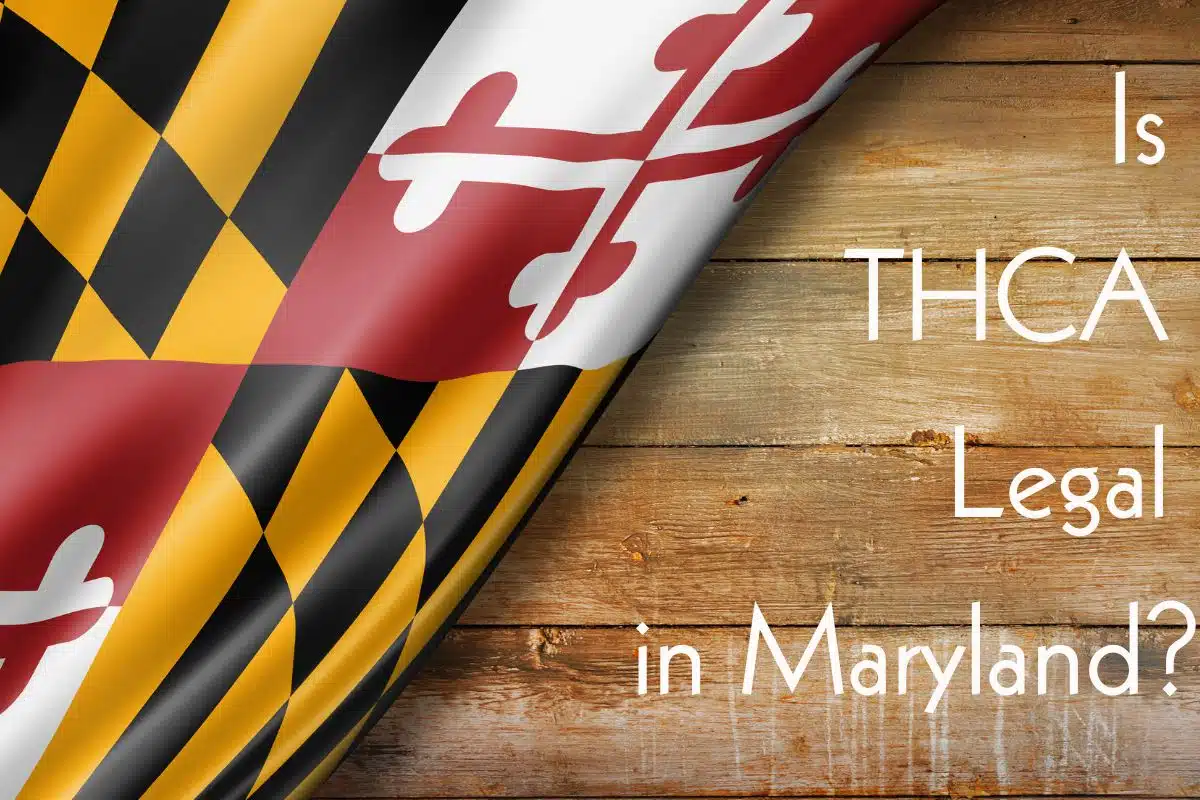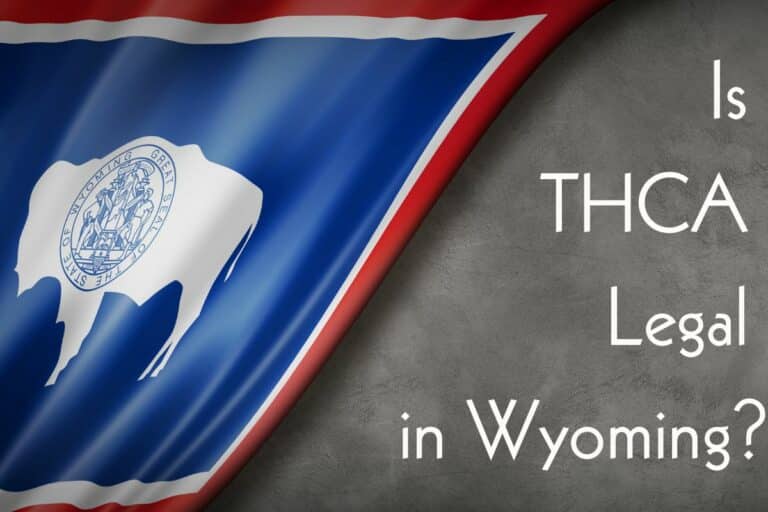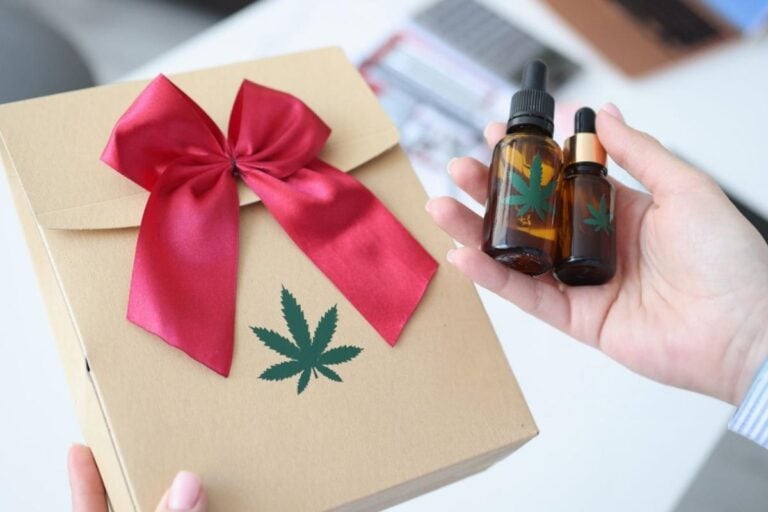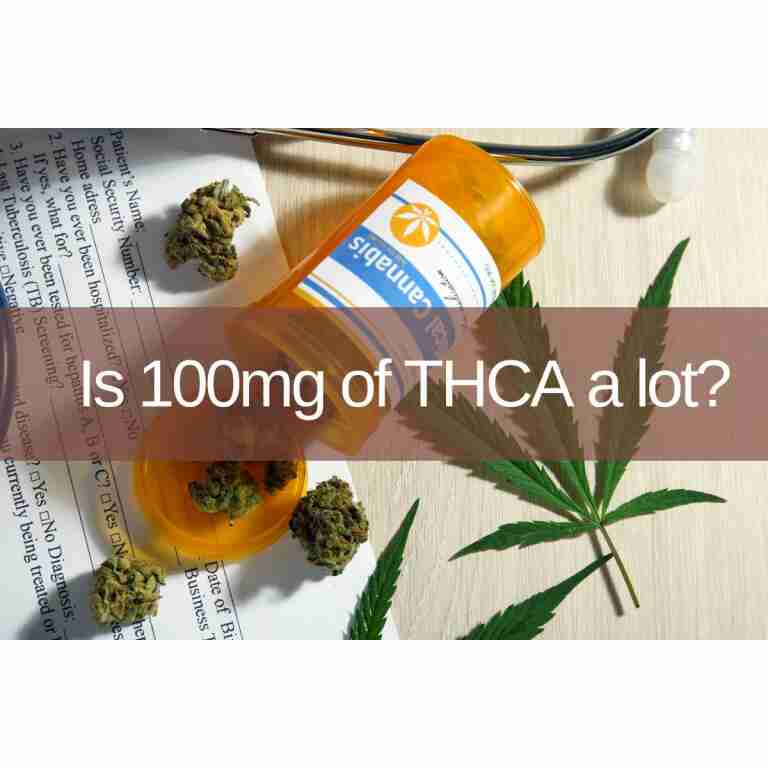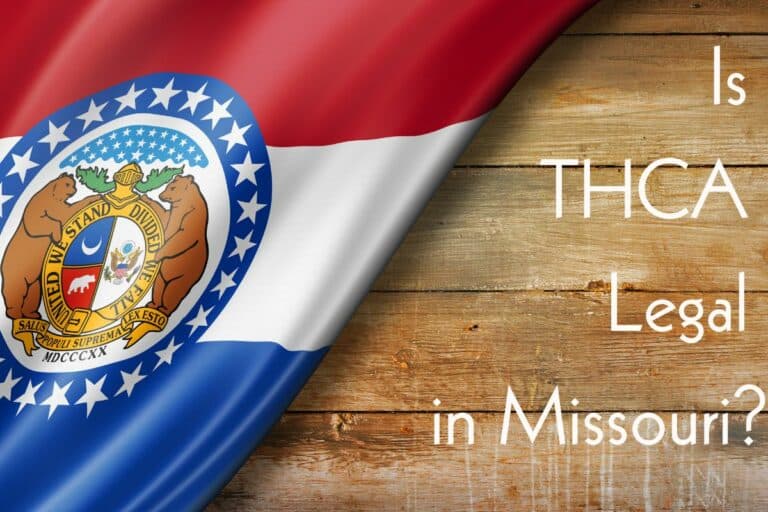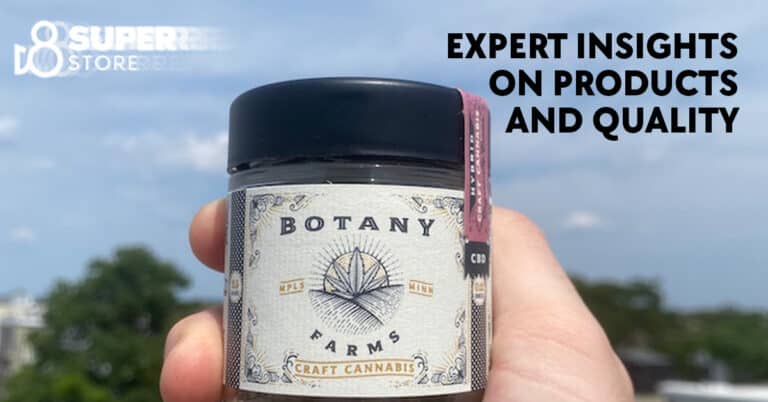Is THCa Legal in Maryland: Understanding State Cannabis Regulations
Unlocking Maryland’s THCa laws is like figuring out a secret puzzle, and guess what? You’ve hit the jackpot. Dive into the world of THCa, the laid-back member of the cannabis family, just chilling in fresh plants. What’s cool about THCa? It keeps you sharp. It only changes into THC, the party-starting sibling, when you heat it up. THCa keeps things low-key, so the rules around it in Maryland aren’t as tight as they are for THC. Eager to jump into Maryland’s take and snag some unique knowledge? You’re in the perfect spot. Hold on tight, because you’re about to discover a thrilling piece of cannabis lore that will blow your mind!
In Maryland, the legal landscape surrounding cannabinoids has evolved, especially with the state’s measures to accommodate hemp production and CBD use. Considering that THCa can be found in hemp varieties grown within the state, its legality often hinges on the plant’s overall THC content. The contents of cannabinoids in hemp varieties grown in Maryland indicate that the level of THCa and its potential to convert into THC is a focal point for determining if a cannabis product meets the legal threshold.
It’s critical to note that Maryland has its own specific regulations regarding cannabis products, which affect how THCa is viewed legally. The distinction between hemp, which by federal law must contain less than 0.3% THC on a dry weight basis, and marijuana, is a key factor in your understanding of THCa’s legality. If the cannabis product contains less than the legal THC limit, it is generally considered legal under both federal law and Maryland state law. As such, the presence of THCa in legal hemp products is typically accepted, provided the overall THC concentration does not exceed this legal limit.
Legal Landscape of Cannabis in Maryland
As you navigate the legal intricacies of cannabis in Maryland, it’s essential to distinguish between state and federal legislation and understand the critical differences in the legal status of hemp versus marijuana.
State vs Federal Law
Maryland’s state laws regarding cannabis are distinct from federal regulations. While federal law considers cannabis a Controlled Substance, Maryland has taken strides to allow for certain uses of the plant. Recreational use of marijuana remains illegal; however, you’re allowed to use cannabis for medical purposes. Since 2014, the state has permitted the medical use of cannabis, provided you have a qualifying condition and proper certification from the Maryland Medical Cannabis Commission.
Hemp vs Marijuana Legal Status
The legal distinction in Maryland between hemp and marijuana rests on the concentration of delta-9-tetrahydrocannabinol (THC), the intoxicating component found in cannabis plants. Hemp-derived products with THC levels at or below 0.3% are federally legal and by state law, but THC levels above 0.3% categorize the plant as marijuana, which is illegal for recreational use. Consequently, while THCa, a non-intoxicating precursor to THC, may be found in hemp varieties legally grown in Maryland, the conversion of THCa into THC must not result in levels exceeding the legal threshold.

Understanding THCa
Tetrahydrocannabinolic acid (THCa) is a cannabinoid found in the cannabis plant, and it’s the non-psychoactive precursor to tetrahydrocannabinol (THC). In an unheated state, THCa has its own potential implications for health but does not produce the “high” associated with THC.
THCa vs THC
THCa is distinct from THC in that it does not have psychoactive effects. The process known as decarboxylation, which can occur through heating, converts THCa into Delta-9 THC, the primary psychoactive compound in cannabis that is responsible for the feeling of being high. This transformation means that while raw cannabis or products not exposed to heat may contain significant levels of THCa, they won’t cause psychoactive effects unless decarboxylated.
- THCa: Found in raw cannabis, non-psychoactive
- Delta-9 THC: Produced when THCa is decarboxylated, psychoactive
Health Implications of THCa
The potential health implications of THCa are an area of interest in medical cannabis research. It has been investigated for its effects on inflammation and other conditions. While not as extensively studied as THC, preliminary research suggests that THCa may have its own health benefits without the intoxicating effects. However, rigorous clinical studies are necessary to fully understand its therapeutic potential.
- Potential benefits:
- May help reduce inflammation
- Could play a role in managing other conditions as part of medical cannabis treatment
Remember, while you may come across products containing THCa, any claims regarding their health benefits should be approached with a scientifically critical eye.
Current Legal Status of THCa in Maryland
In Maryland, the legality of tetrahydrocannabinolic acid (THCa) is closely tied to the state’s regulations on cannabis. As you explore the Maryland cannabis landscape, it’s crucial to understand the specifics of what’s legally permissible regarding THCa.
Possession and Consumption
In Maryland, if you have a qualifying medical condition, you are permitted to legally possess and consume THCa. It’s important to note that THCa is a non-psychoactive cannabinoid found naturally in the raw cannabis plant. When you possess cannabis under the state’s medical marijuana laws, you also possess THCa. However, the possession limits apply: you can possess cannabis that contains THCa only if you’re a patient registered with the Maryland Medical Cannabis Commission (MMCC). For registered patients, the law allows the possession of up to a 30-day supply of medical cannabis, which is determined by your certifying provider.
Purchase and Distribution
If you are a Maryland resident looking to purchase cannabis containing THCa, you must do so through a licensed dispensary. The purchase of cannabis products, including those rich in THCa, is restricted to patients who have received certification from a registered provider and have obtained an MMCC ID card. You’re only allowed to buy cannabis for medical use from state-licensed dispensaries, and any distribution outside of these channels is considered illegal. Keep in mind that recreational cannabis use remains prohibited in the state, so you cannot legally purchase or distribute cannabis, including THCa, without the necessary medical authorization.
Remember, while THCa itself is not psychoactive, the process of decarboxylation, which can occur through drying or heating the plant, converts THCa into THC, the psychoactive component of cannabis. This conversion factor is central to both the medicinal use of cannabis and the legal framework governing its use in Maryland.
Comparison with Other States
| State | Cannabis Regulations in 2022 | Notes |
|---|---|---|
| Maryland | Medical use legalized; limited decriminalization | Maryland has legalized medical cannabis, and there are some decriminalization measures in place. Check for specific regulations regarding THCa. |
| California | Legal for medical and recreational use | California has legalized both medical and recreational cannabis. Specific regulations apply to various cannabis products. |
| Colorado | Legal for medical and recreational use | Colorado has legalized both medical and recreational cannabis. Regulations cover various aspects of the cannabis industry. |
| Oregon | Legal for medical and recreational use | Oregon has legalized both medical and recreational cannabis. State regulations cover the cultivation, processing, and sale of cannabis. |
| Washington | Legal for medical and recreational use | Washington has legalized both medical and recreational cannabis. Regulations govern cannabis production, processing, and sales. |
| Massachusetts | Legal for medical and recreational use | Massachusetts has legalized both medical and recreational cannabis. The state has specific regulations for cannabis businesses. |
| New York | Legal for medical and recreational use | New York has legalized both medical and recreational cannabis. The state has established regulations for cannabis cultivation, distribution, and sales. |
When you consider the legal landscape of THC, specifically THCa, in Maryland, how it compares with other states’ regulations can provide useful context.
Legal Status in Neighboring States
- Virginia: In your neighboring state, Virginia, cannabis laws have evolved, with THC and THCa not being fully illegal. As of my last update, possession of small amounts for personal use by adults is decriminalized.
- Pennsylvania: North of Maryland, Pennsylvania has a medical cannabis program that includes THCa, but it does not allow for recreational use.
Variations in State Laws
The divergence in cannabis laws across the states reflects a patchwork of regulations. Let’s examine a few:
- Washington: Far from Maryland, Washington stands progressive, having legalized cannabis, including THCa, for both medical and recreational use.
- Alabama: Contrasting sharply, Alabama has traditionally had much stricter cannabis laws, only recently allowing medical cannabis with stringent limitations.
- California: As one of the pioneers, California’s laws regarding cannabis, including THCa, are permissive for both medicinal and recreational contexts.
- Texas: In Texas, there’s a strict approach where medical cannabis is heavily restricted and does not broadly incorporate THCa.
In navigating the complex cannabis regulations, state-by-state comparison such as this helps you understand the diverse approaches towards THCa.
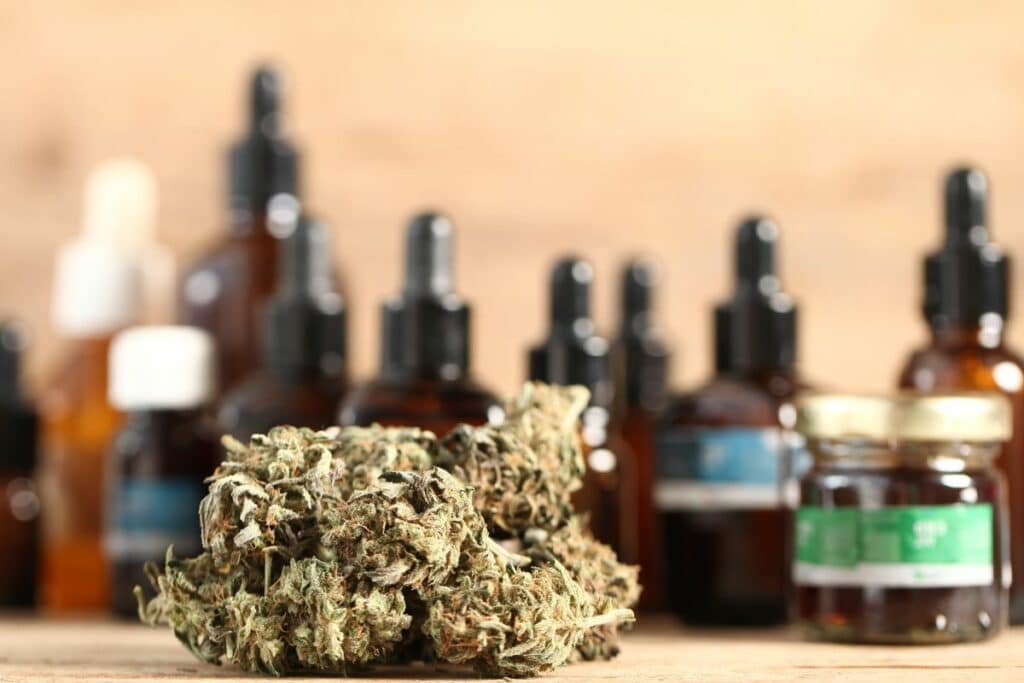
Products and Derivatives
When exploring the world of THC analogues in Maryland, it’s essential to understand the types of products available and their legal status. Particular attention should be focused on products containing THCa, a non-psychoactive cannabinoid, and various other derivatives.
Types of THCa Products
You’ll find THCa in several forms ranging from raw cannabis flowers to concentrated extracts. Here are a few common THCa product types:
- Raw Cannabis: Natural, unprocessed cannabis plant material, rich in THCa.
- Concentrates: Extracts that contain a higher concentration of THCa.
- Tinctures: Liquid extracts typically administered sublingually (under the tongue).
- Edibles: Gummies and other food items infused with cannabis extracts.
Smokable products and gummies tend to be the most popular amongst consumers seeking both the therapeutic benefits and the potential for THCa to convert to THC when heated, known as decarboxylation.
Legal Aspects of Derivatives
Navigating the legal landscape of THCa and its derivatives in Maryland means examining several critical factors:
- Delta-8 and Delta-10 THC: Both are psychoactive cannabinoids synthesized from hemp-derived CBD. They exist in a gray legal area, with state laws continuously evolving.
- CBD: Cannabidiol (CBD) is a legal cannabinoid under certain conditions, primarily if derived from hemp with THC concentrations of no more than 0.3%.
While cannabinoids derived from “hemp” are generally legal, thanks to the 2018 Farm Bill, the legality of each compound can vary based on its source and concentration of THC-like substances. Always check Maryland’s current regulations to ensure compliance.

Navigating Legal Nuances
When you’re examining the legal status of THCa in Maryland, you must understand both the state’s specific cannabis regulations and the wider implications of federal law, especially as interpreted through the Farm Bill.
Interpreting State Regulations
In Maryland, the legal landscape for cannabis and its derivatives continues to evolve. As of now, THCa is not specifically mentioned in Maryland state law separate from THC. You should be aware that THC’s legality hinges on its psychoactive properties, whereas THCa, a non-psychoactive cannabinoid found in raw and unprocessed cannabis, has not been directly addressed. Nevertheless, it’s important to recognize the loophole existing in the language of state regulations, which can lead to different interpretations regarding THCa. Given that THCa can convert to THC when decarboxylated, or exposed to heat, Maryland’s restrictions on THC may implicitly cover THCa as well.
The Farm Bill and its Impact
The 2018 Farm Bill has had a significant impact on cannabis regulation nationwide, distinguishing between hemp, defined as having less than 0.3% THC on a dry weight basis, and marijuana, which possesses THC above that threshold. In Maryland, this federal legislation allows for the legal cultivation of hemp and implicitly permits the production of hemp-derived cannabinoids, including THCa, provided they comply with this restriction. However, the nuances of the Farm Bill do not extend to removing regulations or legal responsibilities at the state level, thus placing the onus on you to navigate these intricacies carefully.
Frequently Asked Questions
In Maryland, the specifics surrounding the legality of THCa matter to you if you’re considering the use, possession, or distribution of cannabis products.
What is the current legal status of THCa in Maryland?
THCa is currently legal in Maryland under the state’s medical cannabis laws if you are a registered patient with the Maryland Medical Cannabis Commission. However, it is important to abide by state regulations regarding possession and use.
Can you lawfully ship THCa to Maryland?
You can lawfully ship THCa to Maryland only if it falls under the state’s medical cannabis program and you comply with both Maryland’s laws and the regulations of the originating state. Remember, transporting cannabis across state lines can still violate federal law.
Are there any restrictions on THCa products in Maryland?
Yes, Maryland imposes restrictions on THCa products. These products must align with the state’s medical cannabis program standards, which include specific labeling requirements, and patients are restricted to a 30-day supply.
Does Maryland law differentiate between THCa and THC?
Maryland law does differentiate between THCa and THC. THCa is the non-psychoactive precursor to THC, and while THCa in its raw form is legal for medical purposes, the state regulates THC-containing products due to their psychoactive effects.
Can the use of THCa result in a positive drug test in Maryland?
Yes, the use of THCa can potentially result in a positive drug test in Maryland, especially once it has been converted into THC through decarboxylation, which can occur naturally over time or when heated.
What are the potential legal consequences of possessing THCa in Maryland?
Possessing THCa in Maryland without proper authorization can lead to legal consequences similar to those for THC, including fines, jail time, and a criminal record. Always ensure you’re in compliance with state medical cannabis laws.

